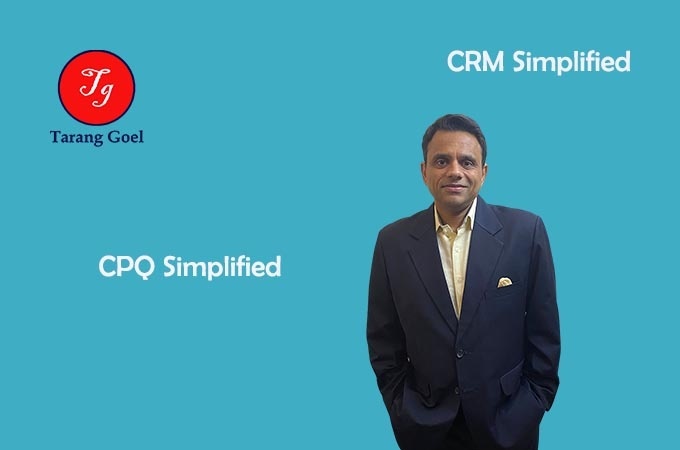In this blog we will deal with answering the following questions:
- What is CPQ?
- Where does it fall in the CRM Lead to Cash Life cycle?
- What are the benefits of CPQ?
- Who are some of the CPQ application providers?
What is CPQ?
CPQ stands for ‘Configure Price Quote’. Many companies offer CPQ solutions. In this blog we will try and understand CPQ process. We will not talk about a specific application.
What are we configuring? The answer is that we are configuring a product.
Why do we need to configure a product?
The answer is that not every product is sold as it is. Some products are a combination of multiple products and this combination can change. For example – buying a watch is simple. You buy an Omega watch and pay the price for it. Now what if you buy an Apple iWatch. Apple iwatch can be bought with many variations and the price varies based on the choice made. So we configure a Apple iWatch. The configuration choices can be few or more and based on that the configuration is simple or complicated. So, this is the reason why we need to configure a product.
What is Price in CPQ?
The answer is that the price in CPQ is the price of the configured product. So, going by the above example we are calculating the price of configured iWatch. This configuration is different for different customers and so the price is also different. The system of arriving at this price is pricing in CPQ. Further illustration could be iWatch has different cases, different bands and accessories and some limited editions. So, the watch is configured based on case, band and edition and each one of this configuration has a price.
Why and what are we quoting?
The answer is we are quoting the products and we are quoting to customers to secure their orders. For example, when I as an individual customer go to apple store to buy an iWatch, a salesman helps in configuring the watch, the price is immediately derived in the configurator and we buy. We immediately place an order and the official quote is not required as we have already made a decision and bought.
But let’s say that Apple is selling 10,000 iWatches to an enterprise customer, In such a scenario, Apple enterprise sales rep will create a quote for the iwatch in which the iwatch will be configured and that quote will have the configured product details, along with delivery period, other terms and conditions will be presented in a specific template. This process is called quoting.
Where does it fall in the CRM Lead to Cash Lifecycle?
CPQ is very much a part of CRM. As explained in my last blog ‘CRM Lead to Cash Lifecycle’ CPQ starts after the opportunity process. It is very much a downstream action from opportunity in the Lead to Cash process. In a CRM system a quote is created from an opportunity and the product is configured in the quote.
Once the product is configured it gets synced with opportunity for the purpose of forecasting. Once the quote is created, product configured and priced, it is sent to the customer for acceptance. Upon acceptance a contract is created from which orders are placed. Once an order is placed, the order is fulfilled, an invoice is created and money is received after which a receipt is issued. You can see how CPQ is so tightly integrated with the Lead to Cash lifecycle.
What are the benefits of CPQ?
- Adds efficiency to sales operations
- Faster go to market for complicated configurable products
- SKU rationalization
- Intelligent quoting
- Measured discretionary power to sales reps
- Guided quoting and selling process resulting in relevant quotes
Some popular vendors of CPQ
Salesforce, Apptus, SAP, Oracle, Vlocity, PROS
Gartner study on CPQ for 2019 can be found here.
I will come up with a few more blogs on CPQ in the CRM Simplified series. These will be specific and based on Salesforce CPQ.
I hope you have enjoyed the above blog. Your likes, share’s and comments will keep me motivated to write more.


2 Comments
Maneesh Agarwal
April 23, 2020 - 11:30 pmGreat Blog Tarang. Explained in very simple and lucid manner..
ปั้มไลค์
July 6, 2020 - 11:44 pmLike!! Really appreciate you sharing this blog post.Really thank you! Keep writing.